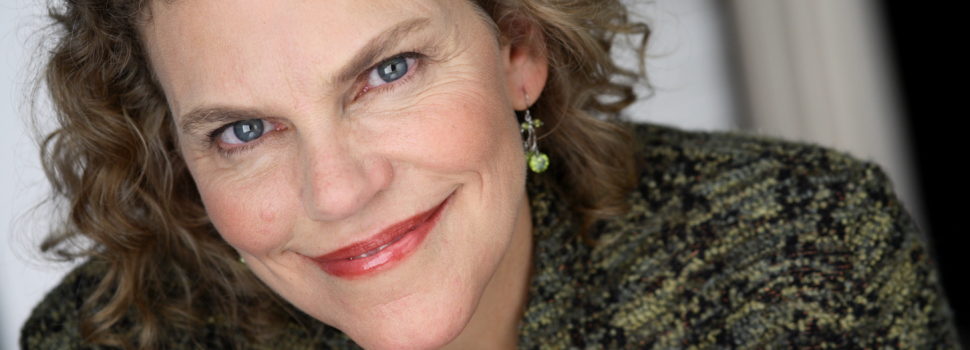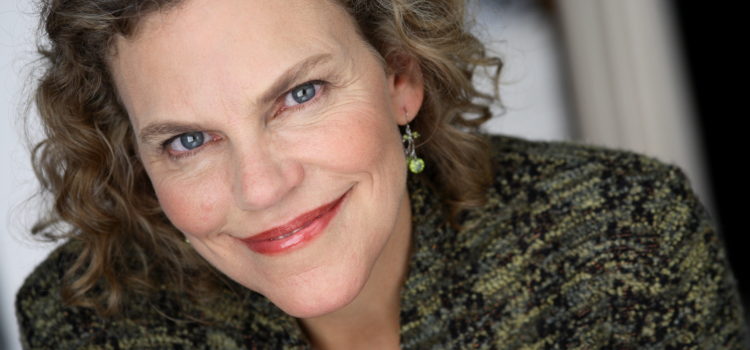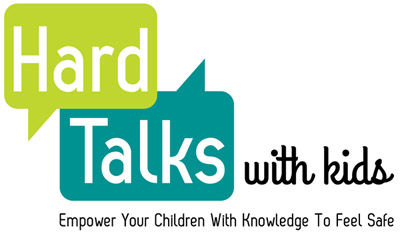

3 Tips and Sample Conversations for Talking to Kids about Terrorism – by Dr. Laura Markham
hard talks September 27, 2016 admin 1

Tips About Disusing Terrorism with Children – Interview with Dr. Laura Markham – by Estée Pouleris
1. Process your own feelings.
2. Protect children from media – especially TV news.
3. Be age appropriate.
We recorded this interview, hearing Dr. Markham’s voice and direction when having these hard conversations with kids is VERY helpful. To hear this scroll to the bottom of this post.
When preparing to discuss terrorism with your child, according to Dr. Laura Markham:
For all children, the very first thing, before we discuss anything, we want to process our own feelings. If there’s a school shooting and you sit down to tell to your kid about it, you’re going to find yourself crying, probably, and that does not help your child feel safe. So, we don’t want to take our shaken, vulnerable, terrified self into the conversation with our child. At all times we’re the grown up, were the adult, we keep our child safe. And that’s the message we want to give our kids. Because otherwise we’re just heightening their anxiety. If you find you’re really upset, unreasonably so and just can’t function, get some extra help, talk to an expert, talk to a counselor. Just so that you’re in good shape when you do talk to your kid.Your goal in talking to your child is always to reassure your child. Yes you’re giving them information but what’s the point of that information – it’s so they can put this big world event in a context that makes sense to them in their lives. And you don’t want the sense that they make of it to be OMG we’re all in danger run. It’s got to be mommy and daddy are going to take care of me and this was a terrible thing but I’m okay and they’re okay and I’m safe in the world. Einstein said the decision we all have to make is, ‘is this a friendly universe?’ So that’s my first tip for any age.
Protect children from media whenever possible. Toddlers shouldn’t see TV. After 911 the plane hitting the World Trade Center was this iconic image where the WTC crumbled and people saw that over and over again replayed in their living rooms on their TV’s. The adults did it because they were watching for news and we were all so horrified. But it was a really bad thing for children and it became the stuff of children’s nightmares. You don’t need to show your kids that graphically. Hurricane Katrina in New Orleans – pictures of children terrified with the rising waters – again that’s not something your child needs in their dreams at night. It’s good to talk to kids about what happened with the hurricane. It’s good for your kids to participate in a drive to be able to send help, whether you’re talking about a book sale to raise money or whatever it is the school might do for such a tragedy. It’s good to have the discussions where you’re able to modulate what your child is hearing so that they’re not seeing horrific images that will sear themselves into their memories. So protect kids from media wherever possible. And that goes even for kids as old as 8 or 9. Those kids have nightmares too. We know that children who watch TV news believe the world is a scarier place than those who don’t – and by the way that’s true for adults too. Adults who watch TV news rather than read the paper believe the world is the a scarier place. So, be careful of media. We know that young children watching TV news don’t know it’s the same thing being replayed – it amplifies their sense of terror, despair and tragedy.
Be age appropriate. Remember, children will always pick up emotional tone. There’s research showing that babies who hear loud voices have an increase in stress hormones circulating in their bodies. And it happens even when they are asleep. Now that’s crazy right- your 6 month old is sleeping, you and your partner are raising your voices trying to argue something out – the 6 month old hears it and is unhappy about it. Their stress hormones increase. So, that doesn’t mean you can never have a fight, it does mean it’d be better if it was in a different room. (We don’t know how loud voices on the TV effects hormones in babies). In general, we have to be aware that children are profoundly affected even if they don’t show it. So for babies, try to keep them away from the media and any loud voices in the home. Try to keep them peacefully sleeping in another room. Toddlers – same thing. Toddlers do not need to know generally about big tragedies in the world. They shouldn’t be listening with you to the news on the radio when you’re in your car. That’s not the time for you to listen. So really just think in terms about any child under the age of 4 years old probably shouldn’t be exposed to this. whatever it is. Now 4 and 5 year olds, preschoolers, it’s a little different because they will hear things at school. They can’t distinguish between what’s real and happening in the moment and what happened in the past, or even what isn’t real like superheroes or comic book villains. Preschoolers can’t tell that. So they need, when possible, to be protected from the media. And also you need to find out what they heard and what they think about it – because they may have misinterpreted what happened. Find out what they think. Kids who are a little older, 6-9 years olds, will often be more interested in the dynamics of it. You can have a much richer conversation with them. It’s a great opportunity to pull out a newspaper and read coverage rather than exposing them to something online with a video that’s going to be more disturbing for them. Then with preteens and teens, it gets into an even more sophisticated discussion. The general framing for kids that age becomes really important- they are idealists and they want to see the world in a hopeful way. All children need to see the world in a hopeful way to feel safe. But preteens and teens need to feel there’s meaning. They really need to see that even though there was a tragedy there were and are ways for things to be better.
For all kids, they see themselves in these scenarios…what would I do? They need to see there’s an opportunity for heroism. For example point out there were firefighters who went back into that building over and over again and saved people’s lives. Or in any disaster there were heroes who tried to save the day. This is a famous quote from Mr. Rodgers – ‘talk about the helpers’, who are the helpers in the situation? Your child needs to know there were helpers, even your 3 year old. And your 10 or 15 year old needs to see herself as a helper.
Sample scenarios and conversations with kids:
Estée: If my 5 year old daughter doesn’t bring up a big event, for example the Orlando shooting, should I bring it up to her or just let it go. My concern is it could come up in school, and it’s now a piece of our history.
Dr. Markham: I would air on the side of bringing it up. In a very simple way, because otherwise if it does come up, the child could feel upset like ‘why didn’t I know about this’. If it’s already come up they may feel it’s something they can’t talk to you about.
Estée: How should I bring it up? In a formal setting or informal, like a talk while walking the dog?
Dr Markham: Always informal unless it’s significant like a school shooting. You’re signaling it’s a very big deal when you sit them down to talk about it.
Let’s do the Orlando shooting as our example.
Estée: Great. Here’s what’s recently happened for us. We live in NYC and I was walking my daughter across the street. The church across the street had tied 49 different colored ribbons on their gate. Now I knew right away this was an Orlando tribute, but my daughter didn’t and asked what they were for. I said I don’t know, but aren’t they pretty. This was probably a teachable moment I missed, wasn’t it?
Dr. Markham: That’s a great example and most parents would probably do the same thing. She’s 5 she doesn’t need to know this horrible thing and you want to protect her innocence. But other kids have seen it, it could easily come up in conversation. Keep it simple. You could say aren’t they pretty, I wonder if they’re anything to do with the shooting in Orlando. There was a tragedy recently and I wonder if that’s what it’s about. You could investigate together if you don’t know by popping your head in the church and asking – or if you know you can say straightforward it’s a tribute for the shooting in Orlando.
Estée: You specifically used the word shooting, because that’s the truth. Are there words I should stay away from? Should I say there was a tragedy or go ahead and say shooting?
Dr. Markham: Tragedy is too big of a word for a 5 year old. They don’t know what you’re talking about. A shooting is what it is. I’d use the word shooting. Here’s how a conversation could go:
adult: It might be about the shooting in Orlando? (squeeze hand) Did you hear anything about that?
range of child responses:
- No, I didn’t hear about it.
- Yes, Johnny wouldn’t stop talking about it at recess he was pretending he was the shooter trying to shoot all of us mommy it was awful I ran and ran.
- I didn’t really hear anything but some of the kids mentioned it.
- Yes, that’s what you get for being gay.
adult: There was a guy who was very unhappy and he had a gun. And he went into a nightclub and he shot people. Do you know what a night club is honey? People were dancing and there was music and they were having a party. And he went in and he killed people, it was really awful.
child: How could he do that? (look of horror) Mommy you don’t go to night clubs do you? (she’s personalizing it, she wants to know if she’s safe and if you go to night clubs).
adult: No honey only grown ups go, but I don’t go anymore. But sweetie there are thousands and thousands of nightclubs all over the country. It wasn’t because it was a night club, it was because this man was mentally ill. There was something very wrong with this man’s emotions. It wasn’t because it was a night club.
child: Well can anyone on the streets be mentally ill?
adult: Most mentally ill people would never hurt anyone. It’s a very rare thing. And you know, our society is pretty good at keeping people safe. Every morning everyone gets up and has breakfast, goes to school then soccer then dinner. Most of the time no one gets hurt. Sometimes people honk in traffic but generally people work things out when they’re unhappy. They use their words.
And when people don’t there are laws against it. And when people break the law for example and speed, they get a ticket from a police officer and they won’t do that anymore. So we have a whole system set up with laws and police officers to help people be their best selves and be good citizens. So it’s very rare for something like this to happen. And when it does it’s very upsetting to all of us, and that’s why this church put these ribbons up. But you know what else is really great sweetheart? At that night club there were people helping each other.
Dr. Markham: Don’t go into wounds, people being in wheelchairs the rest of their lives, etc.
Estée: If a child doesn’t want to talk about it, how do you proceed then?
Dr. Markham: Well I’ve never seen a child not want to talk about it if it’s presented this way. But here are the reasons a child may not want to talk about it:
If we put them on the spot – if we ask them questions, have you ever been scared to go to school? Be careful about how you ask.
If a kid says stop talking mommy, then it’s too painful for them. You’ve given them too much information and not helped them with their feelings enough. I would move to the side of the sidewalk, get down to her level, put your arms around her and say I’m so sorry. You are safe. I will always keep you safe. Daddy and I are safe. It’s okay. These kinds of incidents are really rare. I wanted to make sure you knew about it in case they talked about it at school. But I’m really sorry I talked about it too much. Sweetie if you ever want to talk about this again you can tell me later. I know this was more than we needed to talk about. Can I give you a big hug. (Now you need to dispel the tension and the best way to do this is through a good laugh. Perhaps count taxis on the way home or make up silly words on the walk home, anything to change the energy towards a positive direction.)
Estée: If a child witness an act of terrorism or even loses a parent to an act of terrorism is therapy mandatory?
Dr. Markham: Yes, it’s just too upsetting. You begin to think at any moment death drops out of the sky. It’s not the way you want to live your life.
Estée: Are there clues or signs your child needs therapy even if they haven’t lost someone but it’s happening in the real world:
Dr. Markham: Yes, obsessions with something for example over and over again a child draws pictures of the incident.
Ask him about the picture, ask about how everyone in it feels in their bodies and their hearts. Take the power away from the perpetrator and shift it to the people. Help your child break through into his tears. Help him process the grief. When we feel dis-empowered in a situation, we want to identify with the most powerful person in the room. That’s why a kid may be obsessed with a shooter. Therapy will be very helpful in this type of a situation. (more detail in audio version) When talking about a tragedy, always bring up the heroes. Encouraging children to draw or write is a great way to learn what they’re thinking about. Then help them work through it in a more empowered way. If they’re old enough and there was a natural disaster, they can do research on Tsunamis and learn about global warming. You want your kids to feel empowered to do something. There ARE tragedies that happen, but humans band together to make things better. You want them to think ‘I can do something to help.’
Signs You Child Needs Therapy:
- Direct obsession
- Indirect – nightmares, regression, wetting bed
- Develop sudden fears (new fears)
- Frequent meltdowns.
- Anytime you see a change in behavior you want to find out why. The best way to do that is to spend time with your child in fantasy play to see what comes up.
Dr Markham recorded our conversation. Hearing her talk in her own words and further detail in the mock conversations is so helpful. If you’d like to hear this interview, click below:
Subscribe to Hard Talks With Kids
Dr. Laura Markham trained as a Clinical Psychologist, earning her PhD from Columbia University. She is the mother of two children, now ages 21 and 25. Dr. Laura is the author of the book Peaceful Parent, Happy Kids: How to Stop Yelling and Start Connecting and Peaceful Parent, Happy Siblings: How To Stop the Fighting and Raise Friends for Life. You can find her online at http://www.ahaparenting.com

Lorraine
October 24, 2016 #1 AuthorGood to find an expert who knows what he’s taiknlg about!